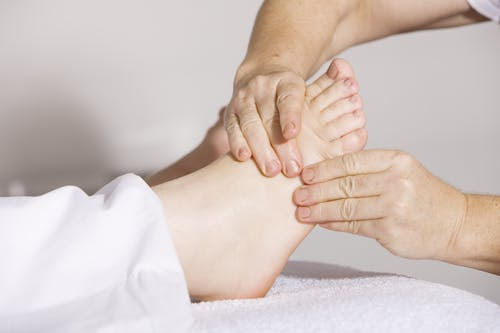Are you stressed? What makes us tired all the time? Why do we get stubborn belly fat, bad skin and dull hair?
Did you know that improving your nutrition can boost overall performance following osteopathy? Read below to find out more.
Modern lifestyle means that chronic health concerns arise. Health is deeper than the absence of disease and also concerns employment, education and environment – all the things that go into making us ‘healthy’.

Some people define healthy as achieving an overall wellness or even feeling balanced. These can be seen in an individual’s posture; health and posture have a strong connection.
Poor posture can lead to an impairment to blood flowing to the chest. As a result, that can strain the blood vessels below the chest and leads to reduced blood flow to the brain causing fatigue. This can also be known as orthostatic intolerance. Other symptoms that are a result of having poor posture include:
- Bloating
- Gastrointestinal symptoms
- Stress/anxiety
- Chest pain
- Aches in joints
Osteopaths are highly trained healthcare professionals, recognised by the NHS. Osteopathy is a way of detecting, treating and preventing health problems. Osteopaths look to treat the cause of pain or disease, for example an individual can have inflammation without pain, however there is no pain without inflammation.
Although there are different causes of pain (either metabolic or homeostatic imbalance), both osteopaths and nutritionists aim to heal internally which is something that happens naturally.

So using poor posture as an example, can cause lower back pain. This can lead to disrupted patterns of a functioning breathing, digestion, sleep, response to nutrition and also response to stress.
A Nutritionist may also look at blood tests to diagnose inflammation, by looking at the erythrocyte sedimentation rate, white blood cell count and albumin levels, as well as looking at other factors (sleep, stress, environment, toxins, chemical and hormonal imbalance).
With osteopathy, nutrition and lifestyle as a means of optimising health, it is important to know about this. Recognising signs and symptoms of acute, sub-acute and chronic inflammatory process, can help diagnose and get the results for optimum health. For those already suffering from musculoskeletal complaints, dietary modification could help with pain management. For example, insulin resistance (a precursor to diabetes) is implicated in the pathophysiology of Metabolic Syndrome (a collection of risk factors that can lead to diabetes, stroke and heart diseases) which may be linked to musculoskeletal pain (Seaman & Palombo, 2014).
An elevated body mass index could also indicate a pro-inflammatory body chemistry and be seen as a potential initiator/promoter of pain too (Seaman, 2013) and it therefore may be incumbent upon chiropractors to identify those at risk and refer them on.
Insulin resistance, weight gain and other conditions can be reversed with the help of a nutritional therapist through the use of multiple strategies such as dietary and lifestyle modifications. This, along with regular chiropractic care, can allow your body to heal itself and achieve good health and hopefully prevent chronic disease.
Speak to one of our qualified Osteopaths, Nutritionists or Functional Medicine Practitioners to get more information on how to improve your eating habits so that you can meet your needs and improve your health.


If this resonates with you then…
Take advantage of our 15-minute sessions either with a Nutritionist or Functional Medicine Practitioner, designed to give you the support you need with your concerns and to get you started on your road to recovery. Find very quick and effective results!
This article was written by our team of specialist therapists at Perfect Balance Clinic. If you would like more specific advice about how our team can help you with this condition or symptoms you may be having, please complete the contact form below and one of the team will get back to you shortly.








